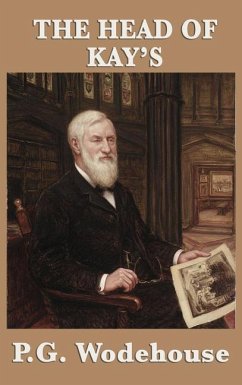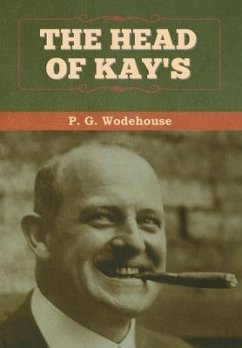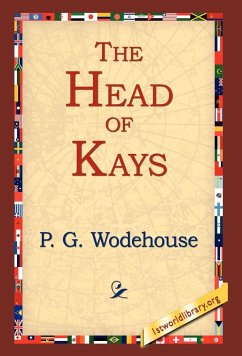
The Head Of Kay's
Versandkostenfrei!
Versandfertig in 1-2 Wochen
13,99 €
inkl. MwSt.

PAYBACK Punkte
7 °P sammeln!
""The Head of Kay's"" is a novel by P.G. Wodehouse, first published in 1905. Set in the fictional English public school of Eckleton, the story revolves around the humorous exploits and misadventures of the students and faculty. Through a blend of witty dialogue and eccentric characters, Wodehouse offers a delightful portrayal of school life, camaraderie, pranks, and the complexities of the educational system in Edwardian England. The narrative captures the lively and spirited atmosphere of the school while exploring themes of friendship, loyalty, and youthful exuberance. With its engaging stor...
""The Head of Kay's"" is a novel by P.G. Wodehouse, first published in 1905. Set in the fictional English public school of Eckleton, the story revolves around the humorous exploits and misadventures of the students and faculty. Through a blend of witty dialogue and eccentric characters, Wodehouse offers a delightful portrayal of school life, camaraderie, pranks, and the complexities of the educational system in Edwardian England. The narrative captures the lively and spirited atmosphere of the school while exploring themes of friendship, loyalty, and youthful exuberance. With its engaging storytelling and memorable characters, ""The Head of Kay's"" exemplifies Wodehouse's knack for humor and his ability to offer a humorous glimpse into the world of British boarding schools.












